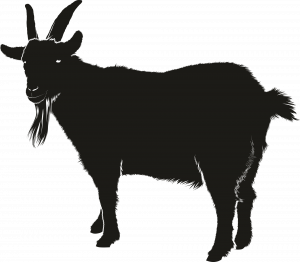“It is forbidden to write about cows or pigs. Goats are problem-free, harmless and above all, energetic.” – Preface of Poonachi, Perumal Murugan.

One cannot help but chuckle at Murugan’s justification for choosing to write about a poor black goat named Poonachi. But the story of Poonachi isn’t just an author’s ho-hum, gimmicky inspection of a goat’s life. Murugan’s work is a gung-ho, up-in-arms political commentary reflecting our times. The inequalities we live in, the racial discrimination we have endured, the government’s apathy towards certain population groups, an individual’s challenges in a totalitarian regime – they all come at us with a ferocity which the innocent premise of the book cradles.
Poonachi is, at its heart, a reworking of the narrative style of the allegorical novella ‘Animal Farm’ by George Orwell. The writer Murugan had declared himself dead in a Facebook post back in 2015, following protests by right-wing activists. Through this lens, this poignant tale of ‘the goat of our times’ is a miracle, an act of resurrection. Poonachi is special for this very reason – it comes after the vehement One Part Woman and yet, shows no trace of an apologetic stance. If anything, the book is more defiant.
Coming to the plotline itself, we begin the story with a black female goat. She is adopted by an old couple as a gift from a miraculous stranger. Raising goats and sheep in Odakkan hill, theirs is a classic idyllic life. Until, of course, the State comes barging in. They slap notices for permissions and documents. In an instance of terrifying dark comedy, the regime arranges for ear piercing of the livestock and the citizens, for identification’s sake. This affair makes Poonachi ask questions about her birthplace, her biological parents and how much her ‘market’ valued was placed at.
Perumal draws parallels between the real world government’s apathy towards right to privacy, and an imaginary countrywide registration of citizens and livestock. Perhaps this is a warning of the possible cruelty of the National Register of Citizens. Perhaps we all like to read too much into our literature. One thing is for sure. Even without naming it, Punaachi’s story is one of allegorical prescient.
Furthermore, the novel is a witty commentary. The farm animals watch their friends being enslaved, used for their milk and then killed as an offering to the God.
This story of a goat is a long, lung-shattering indictment of power-hungry individuals who run every aspect of our lives. Yet it is still, well, a human tale. It is as much a cry for help for the wordless animal as it is for her foster parents, who might have the power of speech but are forced to endure tyranny in helpless silence.
